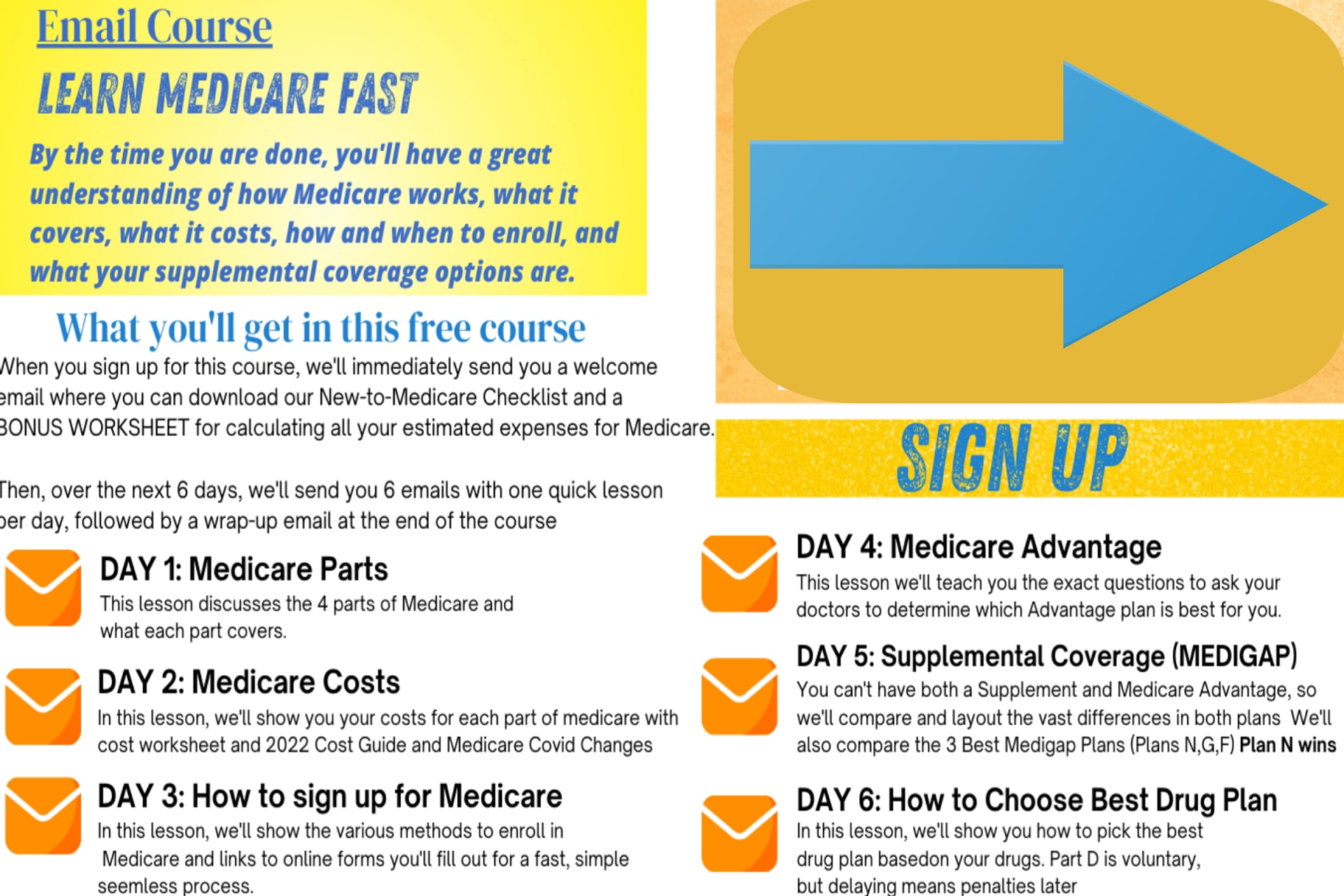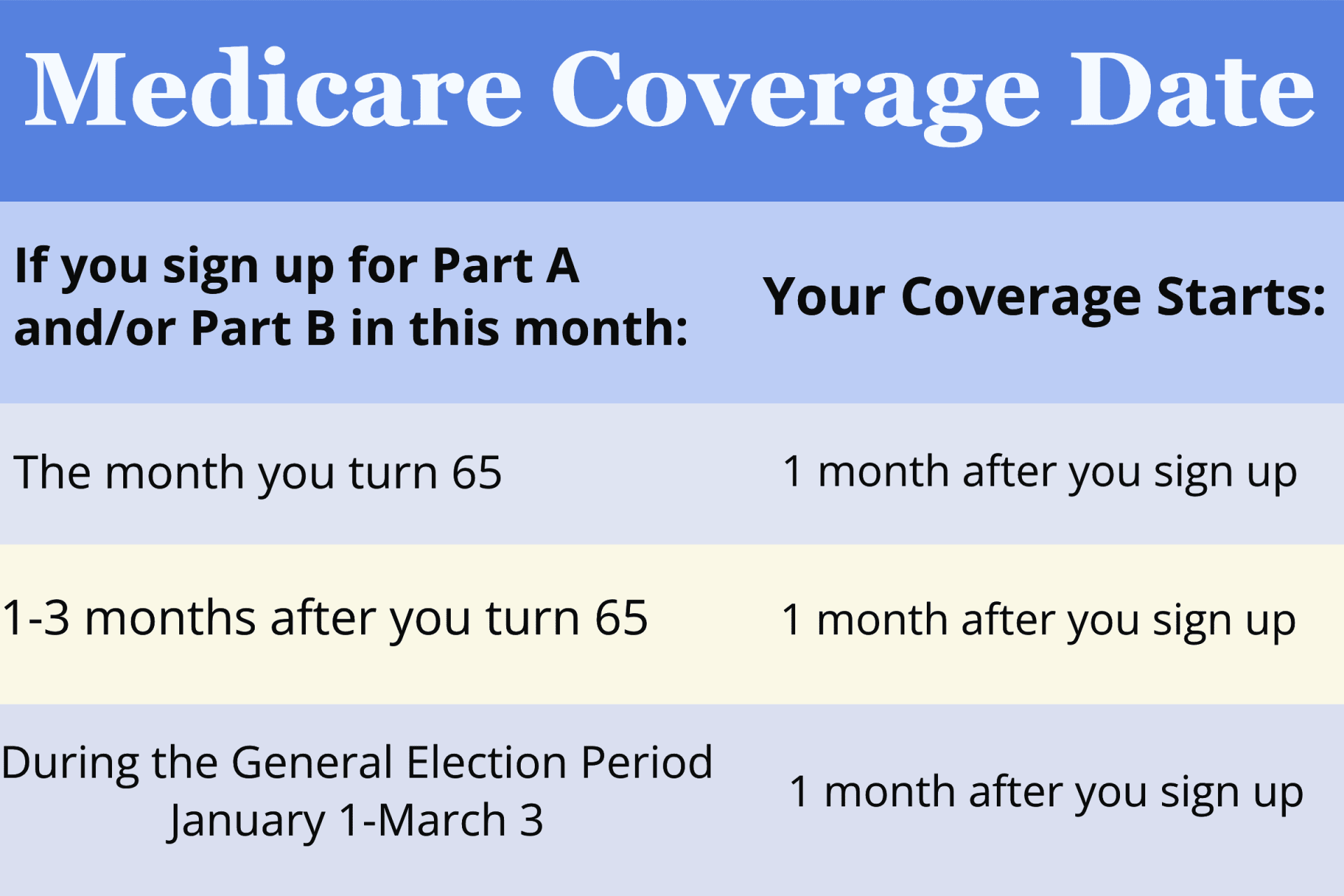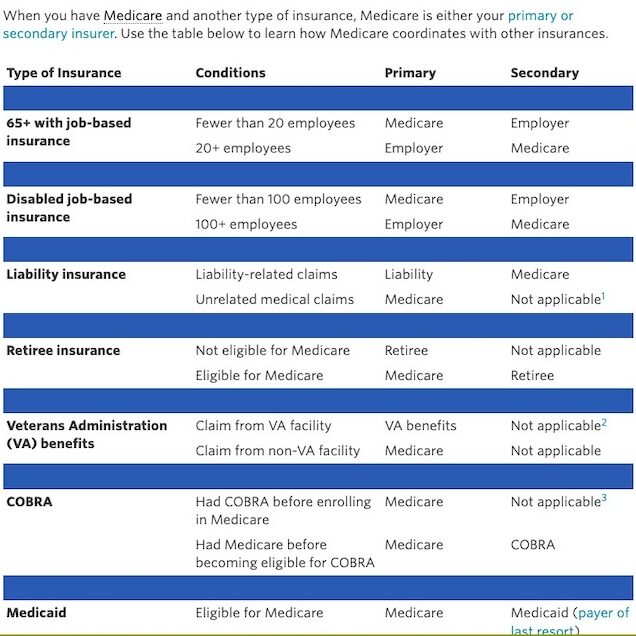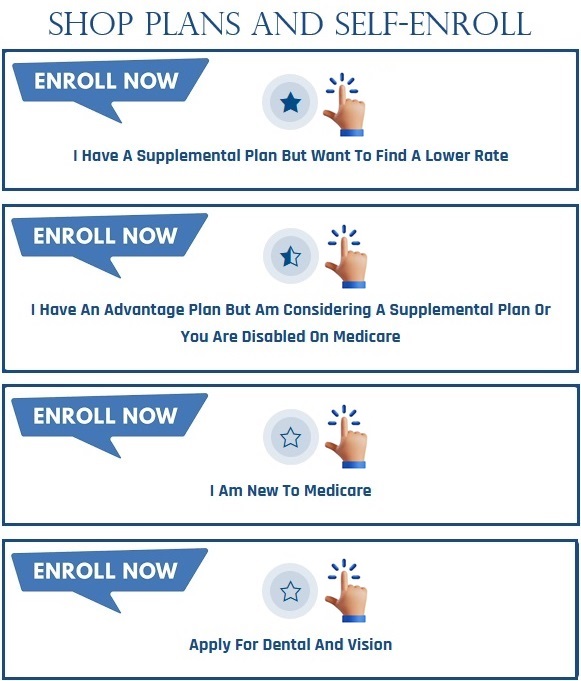Key Points
- If you are receiving Social Security Benefits at least 4 months before your 65 th birthday month you’ll be automatically enrolled in Medicare.
- The time to apply for Medicare is during your Initial Enrollment Period unless you qualify for a Special Enrollment Period.
- You can apply for Medicare online, by phone, or in person at Social Security.
Applying for Medicare can feel intimidating, but your Medicare enrollment will be easier than you might think. We walk thousands of people through how to sign up for Medicare every year, so read on for everything you need to know to apply for Medicare.
The Social Security Administration handles Medicare eligibility and applications for Parts A (hospital insurance) and B (outpatient medical insurance). They offer several easy options so you can choose how to apply for Medicare. If you are aging into Medicare, you may apply as early as 3 months prior to the month of your 65th birthday. You’ll find that getting started early is a plus so that you’ll have your new Medicare card in hand before your effective date
This is your Medicare Initial Enrollment Period to enroll in Part A and Part B. It is also your enrollment period for Medicare Part D. Since prescription drugs are not covered by Original Medicare, you purchase Part D separately from an insurance company. You do not enroll in it through Social Security because Part D is voluntary.
Next, we’ll cover when to apply for Medicare.
Learn More About Medicare for Free: Enroll in Our 6-Day Medicare Mini Course
Get our Turning 65 Six Day New to Medicare video mini-series
Fill out 2025 Form Below
Get Our Six Day New to
Medicare Video Course

6-Day New to Medicare Mini Video Course
When to Apply for Medicare
Medicare is separate from your application for Social Security income benefits. People age into Medicare at age 65, regardless of whether they are taking retirement income benefits yet. If you are a U.S. citizen aged 65 or older and need medical insurance, you are entitled to enroll in Medicare. You can also qualify for Medicare early due to certain disabilities, having Amyotrophic Lateral Sclerosis (Lou Gehrig disease), or End-Stage Renal disease (ESRD), and needing a transplant or on dialysis.
Don’t expect that Medicare will notify you of when it’s time to sign up either. This can be especially important for those who live out of the country.
If you are already taking Social Security income benefits or Railroad Retirement Board benefits, you will be automatically enrolled in Medicare Parts A and B at age 65. Your card should arrive 1-3 months before you turn 65. This timeframe also applies to those who qualify early due to disability. However, you will not automatically receive Part B benefits if you live in Puerto Rico. This means you will need to apply for Part B even if you receive Social Security benefits before age 65.
If you are NOT yet taking retirement benefits, then you will need to submit a Medicare application yourself. The government expects you to know when to enroll. Let’s look at the timeline for when and how to register for Medicare.
Initial Enrollment Period
Your Initial Enrollment Period (IEP) for Medicare Parts A, B, and D last 7 months. It begins 3 months before your 65th birthday month and runs for 3 months after your birth month. Enrolling in Medicare during your IEP means that you will have no late penalties. There are also no pre-existing condition waiting periods.

Watch 2025 Enrolling In Medicare for every Scenario Simplified
Applying for Medicare As Your Primary Coverage
If Medicare will be your primary coverage, you should enroll in Medicare during the 3 months before your birth month. Your Medicare will start on the first of the month in which you turn 65. Enrolling before your birthday will ensure your benefits begin on the first of your birthday month.
If you apply for Medicare during your 65th birthday month or during the 3 months after, your Medicare benefits will start on the first of the following month after you apply.
Also, if you are leaving employer coverage in the middle of your Medicare Initial Enrollment Period, then your IEP trumps any other election period. We’ve seen this a number of times where people assume their Medicare coverage will start immediately after the group coverage ends


The timing of when you file for Medicare will affect the start date of your coverage so it’s important to know the deadlines ahead of time. However, if you are in your IEP and your birth month has already passed, this chart demonstrates that you must wait for your coverage. It’s easy to see why applying for Medicare before your 65th birthday month is generally in your best interest. Although, it is ultimately your choice on when to apply.
6-Day New to Medicare Mini Video Course
Applying During the General Enrollment Period
If you have no other health insurance and you fail to enroll during your 7-month IEP, then you will be subject to a Part B late enrollment penalty of 10% for every full 12-month period that you were not enrolled.
You would need to wait until the General Enrollment Period to apply which is from January 1 to March 31 each year. Your Part A coverage and Part B coverage would not be effective until the 1st of the month after you apply. You also would not have hospital insurance or medical insurance and that could be financially devastating.
Applying for Medicare When you Have Group Coverage
Medicare Enrollment and
Small Employer Coverage
f you have small employer coverage (less than 20 employees), you should always enroll in both parts of Medicare during your IEP. Medicare will be primary if your employer has less than 20 employees. Since Medicare will be primary, you will want to give your doctors your Medicare card first. Filing for Medicare at age 65 is very important if you work for a small employer.
When Medicare is Primary or Secondary when working with other types of insurance?

Medicare Enrollment and
Large Coverage
Medicare can coordinate with your employer insurance even if you or your spouse are still working. If you or your spouse are actively working at an employer with 20+ employees and you are covered by that insurance, Medicare will be secondary to the employer coverage.
In that case, you can choose whether to enroll in Medicare Part B or delay your enrollment into Part B until later. Your group health plan likely has coverage for medical services already built in, so delaying Part B enrollment can save you money until you retire from your job.
When to apply for Medicare varies for each person. What’s worse is that even though these rules exist, there are often workers at Social Security who will get them wrong. This can really affect you, so contact a Medicare insurance broker like Boomer Benefits for help. We have solved Medicare enrollment issues for our clients with plain facts in many conference calls with Social Security.
Lastly, if you are still working at 65, we’ll evaluate the costs of your employer coverage compared to Medicare. If keeping your employer’s insurance makes more sense, we can help you decide whether to enroll in Parts A or B, or both.
Now, if you apply for Medicare past 65 due to having creditable employer coverage, you will qualify for a Special Enrollment Period (SEP). For this SEP you will need to submit CMS form 40B and CMS form L564 which is your proof that you had creditable coverage during employment. When you apply through a SEP, be prepared to wait several weeks for your Medicare approval.
How to Apply Online
First Step is to set up a My Social Security Account before Applying for Medicare Part A and Part B Online. Watch Video Below to Learn how to set up you My Social Security Account.
Social Security offers you a quick online application for Medicare that can be completed in fewer than ten minutes. You do not have to be receiving income benefits to get Medicare. Just visit the Social Security website, create an account, and follow the links about applying for Medicare.
To apply for both SS retirement benefits and Medicare at the same time, visit this link: https://www.ssa.gov/retire
To apply for just Medicare, visit this link: https://www.ssa.gov/benefits/medicare/
While you wait for Social Security to process your request, our friendly agents can help you learn about your Medicare Supplement insurance options. We’ll provide you with resources and make sure your coverage is ready to go.
Enrolling in Medicare online is certainly the easiest, but occasionally people run into problems because some of their data is incorrect in Social Security’s system. If that happens, you can consider signing up by phone. Let’s take a look at that next.
Common Questions About Applying for Medicare:
When will I get my Original Medicare card?
How long does it take to get your Medicare card after applying? In most cases, you will receive your Medicare card about 3 weeks after you apply. If you are already receiving Social Security benefits when you turn 65, your card will just show up in your mailbox about 2 months before you turn 65. When you receive it, be sure that you do not forget to enroll in Part D – if you need drug coverage – before your Initial Enrollment Period ends.
Do I automatically get Medicare when I turn 65
Maybe! If you are already receiving Social Security benefits at least four months before your 65th birthday month, you’ll be automatically enrolled in Medicare at 65. However, if not, you will need to enroll in Medicare yourself.
When is open enrollment for Medicare?
Your open enrollment for Medicare itself is based on your birthday. It’s a seven-month Medicare enrollment period window that begins 3 months before your 65th birthday month. Register for Medicare within this window to avoid penalties. Be sure not to confuse this enrollment period with the Annual Election Period (AEP) in the fall.
Do you have to apply for Medicare every year?
Hell no! One Medicare application is enough for a lifetime.
Your Medicare Part A and Part B will automatically renew every year unless you fail to pay your monthly premiums. Your Part D drug plan will also auto-renew each year. However, Part D drug plan benefits change from year to year. Be sure you review your coverage annually during the fall Annual Election Period.
Applying for Medicare is just your first step. Medicare does not cover all of your medical costs. There is significant financial exposure to you in the deductibles and coinsurance that you must pay.
Applying for Medicare with our FREE Assistance
- Still concerned about how to sign up for Medicare? Don’t want to go in it alone or feel unsure about your Medicare enrollment dates?
- You don’t have to submit your Medicare application alone. We are here to help you register for Medicare.
- If Medicare will be your primary health insurance, and you’d like a personal guide to take you from applying for Medicare all the way through to setting up your Medigap and Part D plans, we are your go-to source for help. Our service is free, and afterward, you also get access to our Client Service Team for free for the life of your policy.
- Get someone on your side – contact May River Medicare for help with your plan options today!
Key Takeaways
- There are three enrollment periods for you to apply for Medicare: The Initial Enrollment Period, a Special Enrollment Period, and the General Enrollment Period.
- If you are covered by creditable employer insurance past 65, you can delay Medicare and qualify for a Special Enrollment Period.
- If you are not automatically enrolled in Medicare and need to apply, you can do so by phone, online, or in person through the Social Security office.





